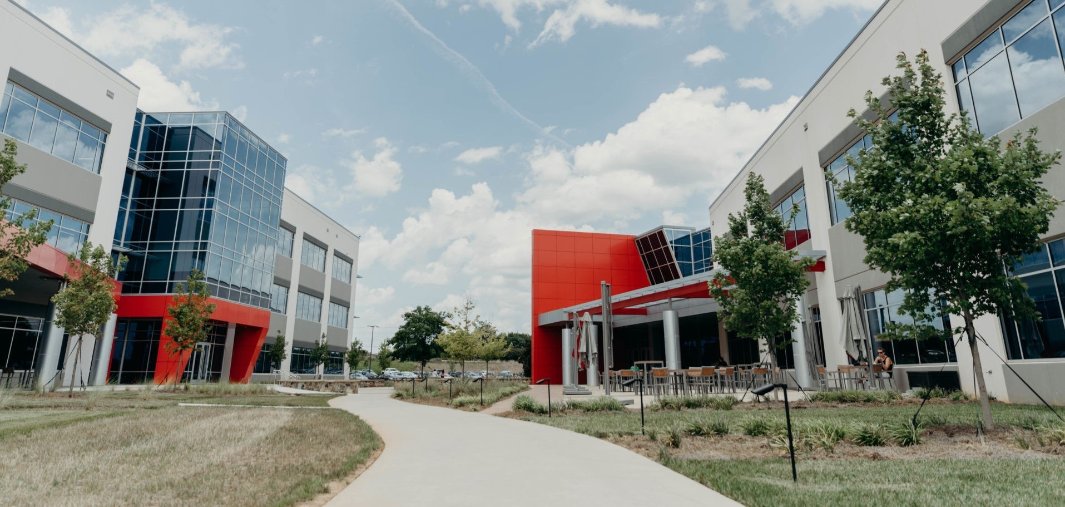NFL Man of the Year inspires Movement leaders with tales of injuries, perseverance
Carolina Panthers linebacker Thomas Davis was adamant he was going to find his way out of his tiny Georgia town after high school.
And he did.
He stayed out of trouble, immersed himself in football, basketball and track and, after an initial setback, scored an athletic scholarship at the University of Georgia.
But a health scare and several injuries during his professional football career threatened to sideline the father of four who turned 33 on Tuesday.
Yet, Davis — who tore his ACL three times in three years and was told he would require open heart surgery — consistently beat the odds. In the process, he fortified his faith.
"Your mindset changes as you grow, as you mature. That happened for me," he said Wednesday to a roomful of Movement Mortgage sales leaders. "It went from being about why is this happening to me to just simply thanking God for the many blessings He's bestowed upon me, and thanking Him for each and every day I get to walk the face of this earth."
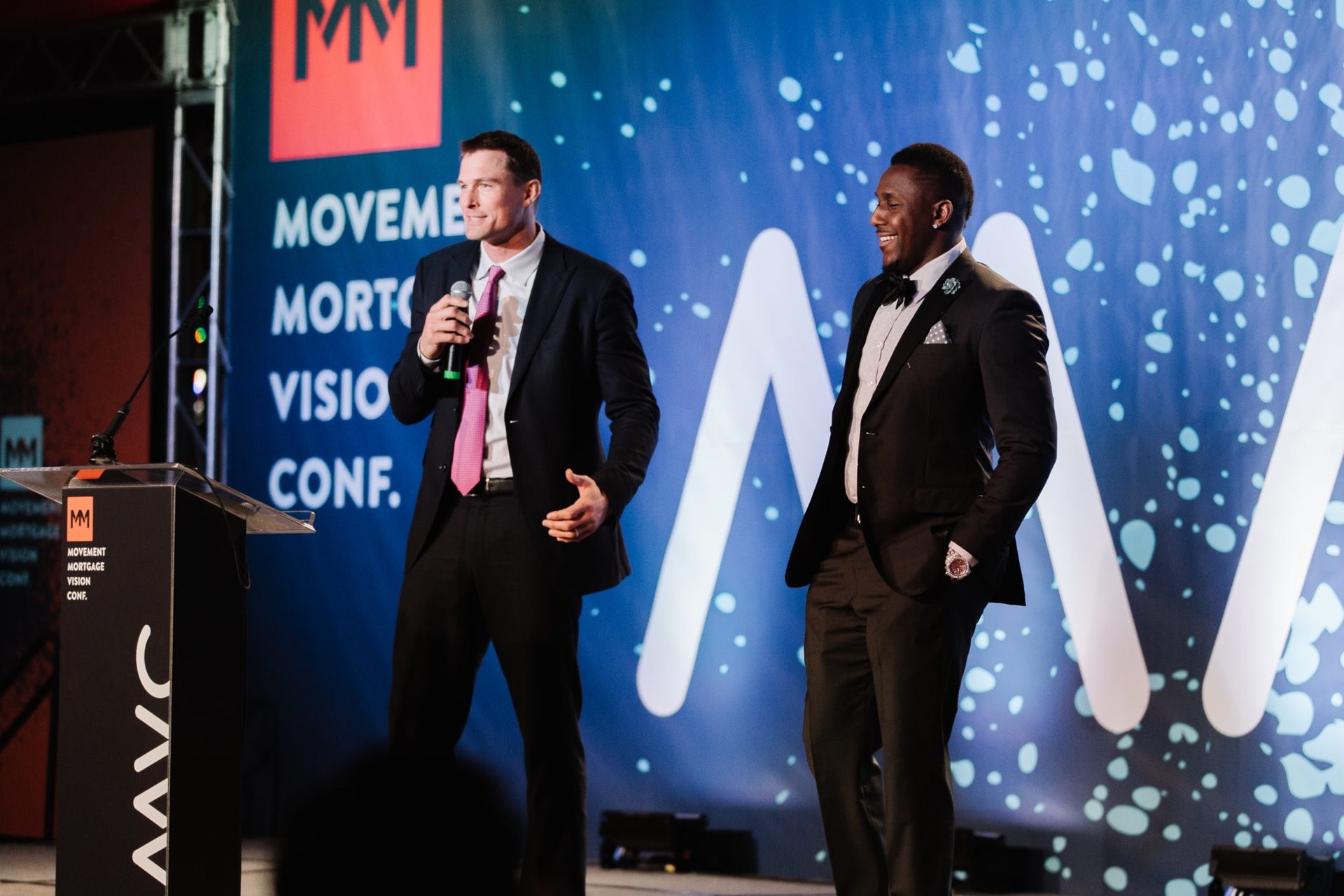
Humble beginnings
Davis shared details of his personal trials, career, faith and even parenting on the second day of Movement Mortgage's Vision Conference, a gathering of 400 market and sales leaders at the Sheraton Le Meridien in uptown Charlotte.
Movement President Casey Crawford, himself a former NFL player, described Davis as someone who performed "unbelievable human feats." After a one-hour speech, Davis earned a standing ovation.
"He's won every award there is to win in the NFL," Crawford said. "It's impossible to put on a spreadsheet, character. It's impossible to put on a spreadsheet, teamwork."
Davis was chosen as the National Football League's 2014 Walton Payton Man of the Year, an award that honors NFL players for their charity, volunteer work and excellence on the field.
Alongside his wife Kelly, Davis, who has played with the Carolina Panthers since 2005, founded the Thomas Davis Defending Dreams Foundation, a nonprofit that equips underprivileged youth with social and life skills to succeed professionally.
"I see a lot of myself in the kids we work with," Davis said. "As a kid, it's easy to decide not to go to school when you don't have a parent in the household. It's easy to decide to take days off and be lazy and not really do the things that you need to do to be successful."
But, just as he tells his students, Davis said, "It's important to do things the right way all the time — not when you know someone is watching you. You do it because you never know who's watching you. You never know what eyes are on you."
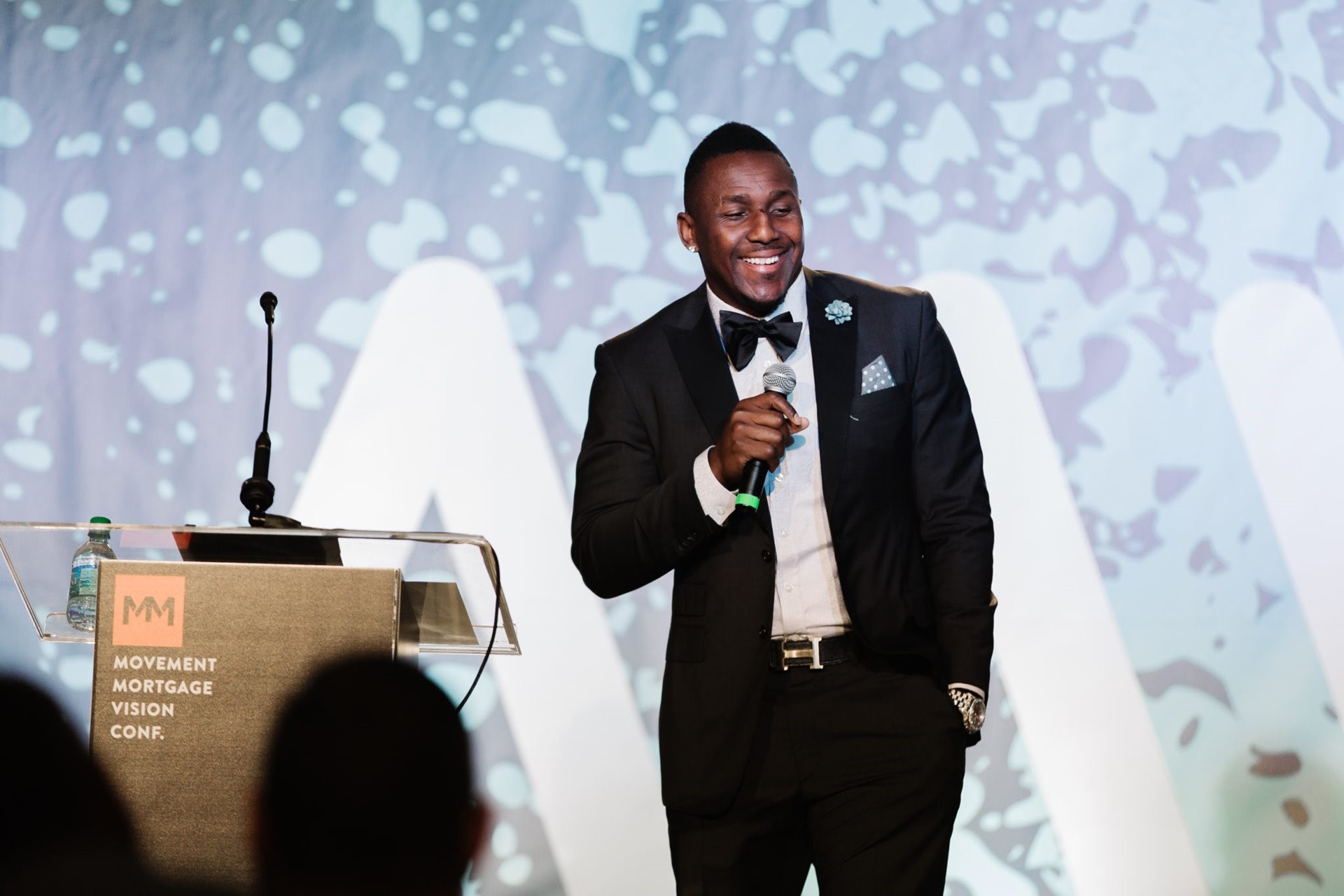
Davis and his sister were raised by a single mother in Shellman, Ga., a small town with a population of just over 1,000. In his junior year of high school, he lived with an older cousin when his mother and sister moved to Alabama.
His father wasn't in the picture.
Those years were tough, he said: "All I knew is we didn't have the same opportunities as the other kids in our neighborhood growing up."
Those disadvantages inspired Davis to use his God-given athleticism to leave his hometown. He was recruited to the University of Georgia, his only Division I college scholarship offer.
"I understood what it took to get to the point where I was at. I understood how hard I had to work," he said.
Some of that understanding did not translate well when Davis was drafted to the Panthers. His rookie year, "I didn't do the things I needed to be successful," he said. "I didn't fulfill my duties as a player, and I learned from that."
The next season, he came back with a sharper focus. In 2008, the Panthers made the playoffs. That same year, he and Kelly started their foundation.
Then came 2009, "a year I will never forget," Davis said. While getting a heart screening — a show of inspiration to encourage youth athletes to do the same — doctors found something wrong with his heart.
Their diagnosis: He would need open heart surgery.
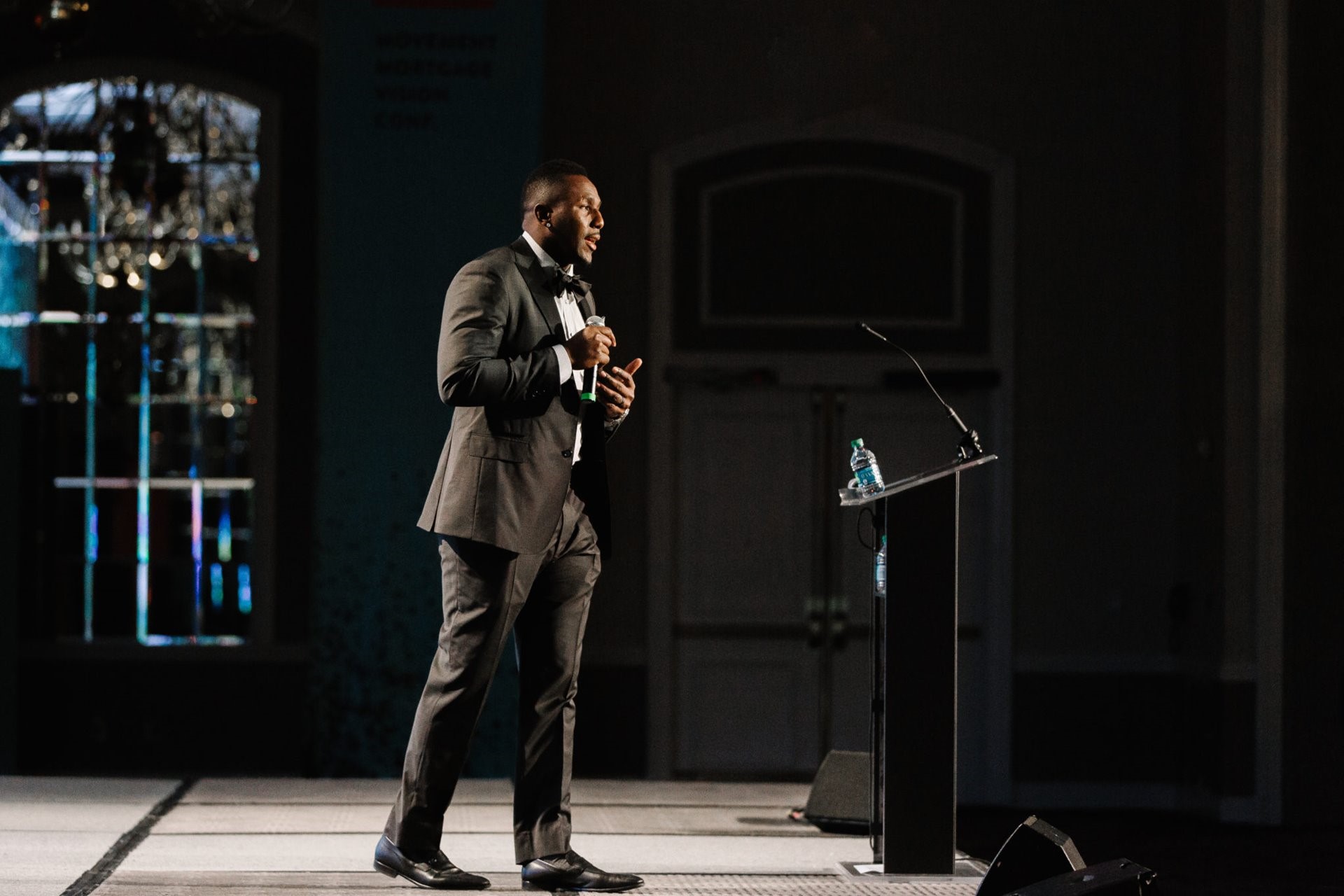
Tests and trials
For the next two weeks, Davis and his wife prayed each day. There were follow-ups with specialists. They decided he would not need surgery after all. He was in a group of just 1% of the population with that heart condition that would not require surgery.
"That was one of the times I knew, beyond a shadow of doubt, that prayer could really change things," Davis said. "If that's not a true testament of how amazing God is and the healing powers that He has, I don't know what is."
More tests of his faith followed: He would tear his ACL three times over three years. After the third injury, he figured his career was over. But a meeting with Panthers Coach Ron Rivera and the team's owner, Jerry Richardson, convinced him otherwise: They still wanted Davis to play.
"When you think about an NFL owner telling you after you've torn your knee up three times in three consecutive years, you have someone still telling you they believe in you – you take that and make the most of it," Davis said. "You run with it."
After his most "invasive" surgery yet, Davis attended the Panthers draft party. He was passed over as starting linebacker in favor of newcomer Luke Kuechly. He faced two options.
"You can sit back and allow yourself to be replaced or you can step up to the challenge and you can become part of that group," he said.
Midway through the season, he returned to the starting line and developed an on-the-field bond and chemistry with Kuechly that he called "unreal."
Davis is still the only NFL player to return to the playing field from three severe ACL injuries to the same knee.
His return to the game "was about more than individual accolades," he said. "It was about the team. It was about doing what you were being asked to do so that the team could be successful."
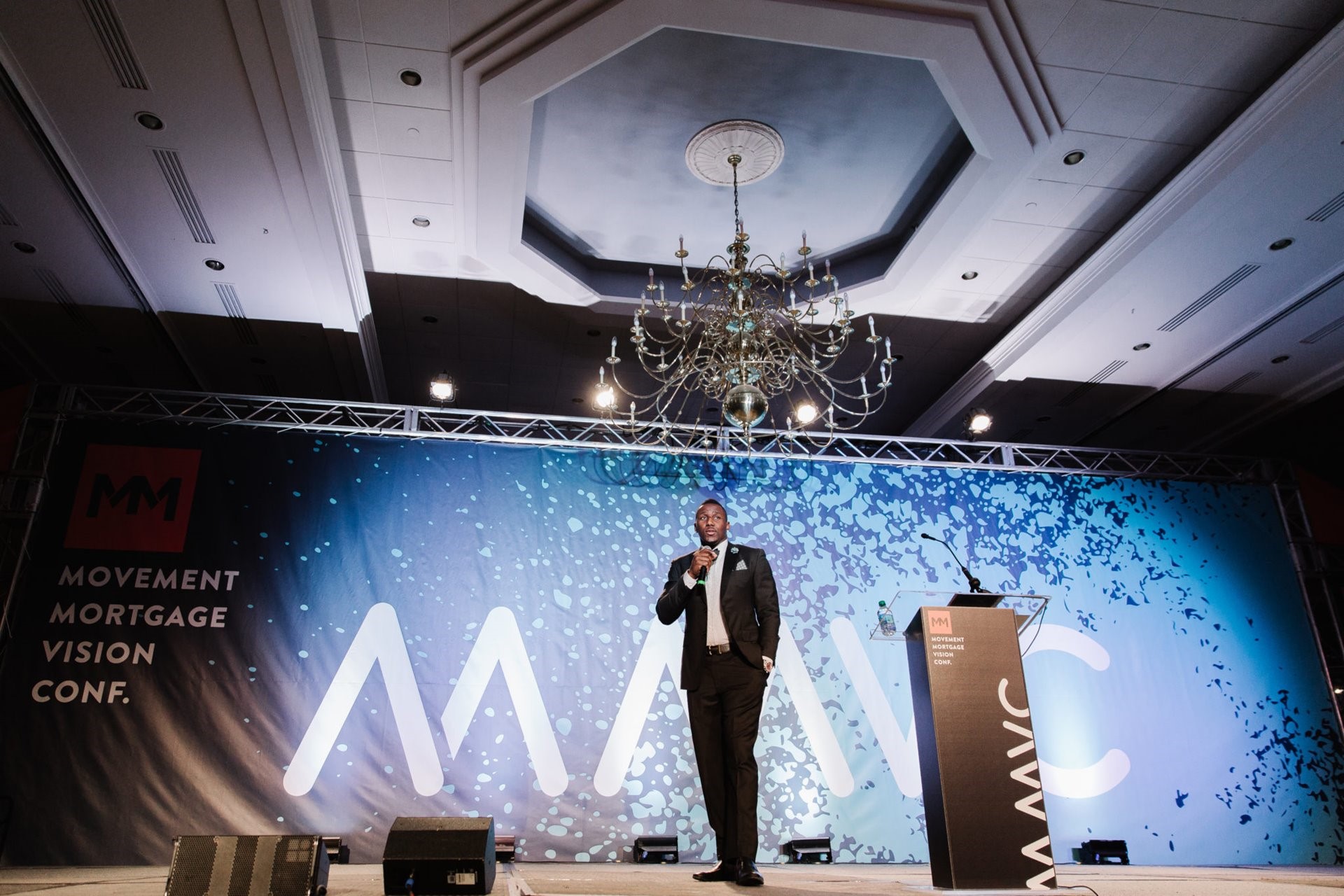
Taking one for the team
Davis challenged market leaders to gauge if they were doing all they could to make their teams successful. Then, as an example, he discussed his determination to play against the Denver Broncos in Super Bowl 50 with a broken arm.
"While they were X-raying my arm, I'm praying, 'Lord, if there's any possible way…for me to be able to play in this game in two weeks, please allow it to happen,'" he said. "And it happened."
And while Davis still mourns the Panthers' 24-10 loss, he said the team is forging ahead and looking forward to this season: "We're eager. We're excited. The work isn't done yet."
Davis' speech won't soon be forgotten.
“In poverty and in riches, he still faced adversity and his ability to persevere — not only persevere through it but exceed at the highest level at the same time — is just amazing to me,” Movement National Sales Director Deran Pennington said after hearing Davis.
“Our culture allows salespeople in the field, facing adversity, facing challenges, to persevere through it. It also gives them a goal that's greater than closing that loan. There's a bigger purpose. There's a bigger idea,” Pennington said. “When he had his third ACL injury there was one person in the room that believed in him. Mr. (Jerry) Richardson said if you're willing to put in the work, I'm willing to put everything behind you to make you successful. That's the daily life of a market leader when they're coaching and encouraging their loan officers. If you're willing to put in the work and you're disciplined, I'm willing to invest in you – not only in your business but in your life, as well.”
